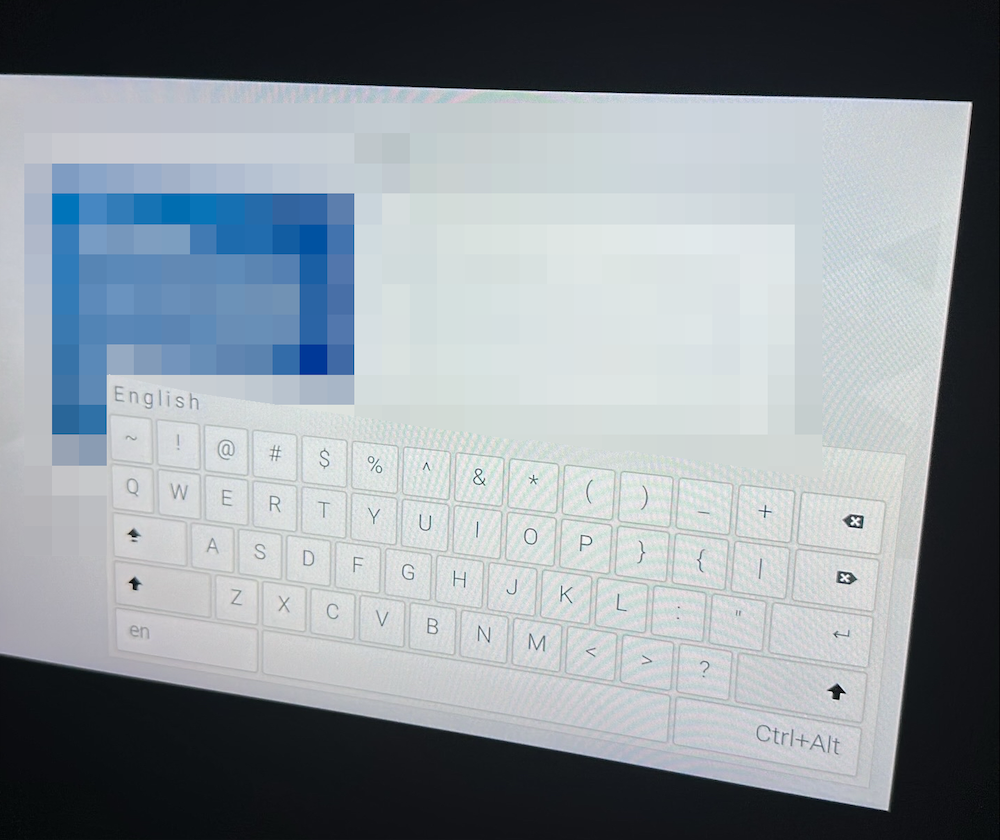How to tell what virtual touch screen keyboard is installed?
0
votes
0
answers
26
views
I am working on a system that runs chromium in a docker container, and the docker container is running on a linux system. The screen attached is a touch screen.
I have heard numerous customer complains about our onscreen keyboard so I would like to change it's configuration, appearance and functionality if possible. However to do this, I need to know what keyboard is being used/displayed.
**How can I identify which of the various linux on screen / touch screen keyboards is being used?**
I was looking through a list I found and I coudln't find any that look like the keyboard our system uses:
 - Are there files or other places I should check on the system?
- How can I tell where the keyboard is coming from? (Chromium? Docker container? Base Linux system?)
----------
More information about the system:
- The system is rather minimal, there is no traditional desktop environment that I could find
- It seems to use X11, where there is an X server container running and the chromium container is a client
- After installing proper deps/libs inside the display server container, I was able to run
- Are there files or other places I should check on the system?
- How can I tell where the keyboard is coming from? (Chromium? Docker container? Base Linux system?)
----------
More information about the system:
- The system is rather minimal, there is no traditional desktop environment that I could find
- It seems to use X11, where there is an X server container running and the chromium container is a client
- After installing proper deps/libs inside the display server container, I was able to run
 - Are there files or other places I should check on the system?
- How can I tell where the keyboard is coming from? (Chromium? Docker container? Base Linux system?)
----------
More information about the system:
- The system is rather minimal, there is no traditional desktop environment that I could find
- It seems to use X11, where there is an X server container running and the chromium container is a client
- After installing proper deps/libs inside the display server container, I was able to run
- Are there files or other places I should check on the system?
- How can I tell where the keyboard is coming from? (Chromium? Docker container? Base Linux system?)
----------
More information about the system:
- The system is rather minimal, there is no traditional desktop environment that I could find
- It seems to use X11, where there is an X server container running and the chromium container is a client
- After installing proper deps/libs inside the display server container, I was able to run xeyes and xclock and it showed up on the display.
- When you first SSH to the device, running cat /etc/issue reads carlOS (Containerized Application Realtime Linux Operating System) 1.0.0
- When you exec into the container running chromium, running cat /etc/issue reads Debian GNU/Linux 12
- When you exec into the display server container, running cat /etc/issue reads Ubuntu 22.04.2 LTS
Things I've tried:
- Chromium container
# echo $DESKTOP_SESSION
# ls /usr/bin/*session
/usr/bin/dbus-run-session
# HardInfo
sh: 4: HardInfo: not found
# ps -A | egrep -i "gnome|kde|mate|cinnamon|lxde|xfce|jwm"
# env | grep XDG_CURRENT_DESKTOP
# echo $XDG_CURRENT_DESKTOP
# lsb_release -a
sh: 67: lsb_release: not found# echo $DESKTOP_SESSION
# ls /usr/bin/*session
/usr/bin/dbus-run-session
# HardInfo
sh: 3: HardInfo: not found
# ps -A | egrep -i "gnome|kde|mate|cinnamon|lxde|xfce|jwm"
# env | grep XDG_CURRENT_DESKTOP
# echo $XDG_CURRENT_DESKTOP
# lsb_release -a
sh: 7: lsb_release: not found
Asked by Wimateeka
(1085 rep)
Jul 8, 2025, 07:00 PM
Last activity: Jul 9, 2025, 07:00 PM
Last activity: Jul 9, 2025, 07:00 PM